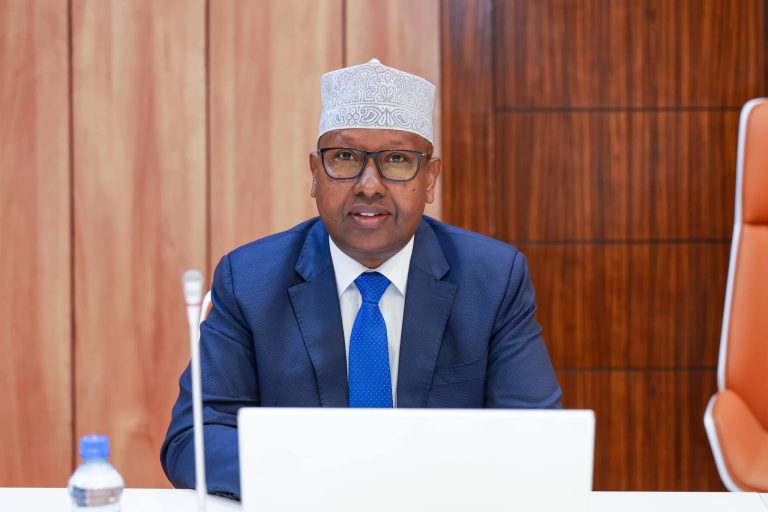WASHINGTON, United States – Somalia is among 12 countries whose nationals have been barred from entering the United States under a renewed executive order signed by President Donald Trump, who described the Horn of Africa nation as a “terrorist safe haven” and cited grave concerns about its governance and national security.
The sweeping travel ban, announced Wednesday night, revives one of Trump’s most controversial first-term immigration policies and will take effect at 12:01 a.m. Monday.
The order blocks entry to citizens of Somalia, Afghanistan, Iran, Libya, Yemen, Sudan, Eritrea, Haiti, Chad, Burma (Myanmar), Equatorial Guinea, and the Democratic Republic of Congo. Seven additional countries—Burundi, Cuba, Laos, Sierra Leone, Togo, Turkmenistan, and Venezuela—will face heightened visa restrictions.
“I must act to protect the national security and national interest of the United States and its people,” Trump declared in his proclamation.
“Somalia lacks a competent authority”
Trump offered a scathing assessment of Somalia’s internal security and administrative capacity, citing its lack of a functional government, inability to control its territory, and vulnerability to terrorism.
“Somalia lacks a competent or cooperative central authority for issuing passports or civil documents and does not have appropriate screening and vetting measures,” he stated.
“Somalia stands apart from other countries in the degree to which its government lacks command and control of its territory, which greatly limits the effectiveness of its national capabilities.”
He described the country as a persistent source of terrorist threats, noting that militants use Somali territory to “plan, facilitate, and conduct their operations.” Somalia, he said, “remains a destination for individuals attempting to join terrorist groups that threaten the national security of the United States.”
Trump also criticized Mogadishu’s refusal to accept deported nationals, calling it a key factor in imposing restrictions.
“The entry into the United States of nationals of Somalia as immigrants and nonimmigrants is hereby fully suspended,” he concluded.
Despite international backing, Somalia has faced decades of political instability. It continues to battle the Al-Qaeda-linked militant group Al-Shabaab, which carries out frequent bombings and targeted assassinations.
The Somali government remains largely unable to exert control beyond major urban areas, while insurgents control much of the countryside.
The United States conducts regular airstrikes against Al-Shabaab and provides security assistance to Somali forces. However, U.S. officials remain concerned about the country’s ability to issue secure travel documents and properly vet outbound travelers — shortcomings Trump argued pose a direct threat to U.S. national security.
The renewed ban is expected to affect Somali-American communities in states such as Minnesota and Ohio, where many families had been reuniting with relatives or applying for educational, work, or humanitarian visas.
As of Friday, the Somali government had not officially responded to the new restrictions. Mogadishu has historically condemned its inclusion on U.S. travel ban lists, arguing that such measures unfairly target ordinary Somalis while doing little to achieve meaningful counterterrorism outcomes.
Return of a controversial policy
The order marks a return to Trump’s earlier immigration policies, beginning with the January 2017 executive order that barred entry from seven Muslim-majority nations: Iran, Iraq, Libya, Somalia, Sudan, Syria, and Yemen.
Dubbed the “Muslim Ban,” the policy triggered global outrage, mass protests, and legal challenges, with confusion and detentions at U.S. airports as travelers were denied entry or sent back abroad.
The ban, later revised, was ultimately upheld by the U.S. Supreme Court in 2018 in a narrow 5–4 decision. The final version restricted travelers from Iran, Somalia, Yemen, Syria, and Libya, along with North Korea and select Venezuelan officials and their families.
Civil rights groups, legal scholars, and Democratic lawmakers have long criticized the policy as discriminatory, arguing it targets Muslims and undermines America’s foundational values.
During his 2016 campaign, Trump called for a “total and complete shutdown of Muslims entering the United States,” a statement that opponents repeatedly cited as evidence of religious bias in court cases.
In response to the renewed restrictions, the American Civil Liberties Union (ACLU) issued a statement condemning the move.
“This renewed ban once again stigmatizes millions based on nationality and religion,” the statement said. “It is a dangerous and discriminatory policy that undermines America’s commitment to equal treatment under the law.”
President Joe Biden repealed the original ban shortly after taking office in 2021, describing it as “a stain on our national conscience.”





































